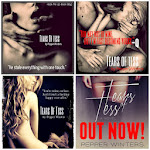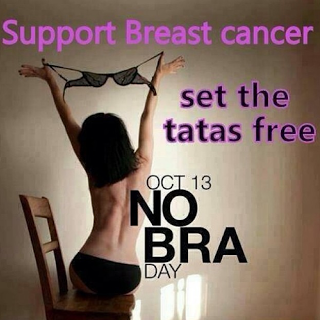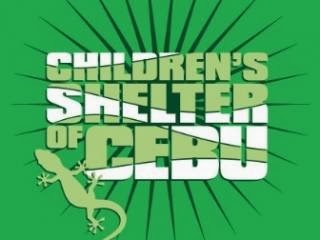What do you consider the most challenging about writing a novel, or about writing in general? Balance, and keeping on even when I don’t have the energy for it. When I am writing the first draft, and mostly through the second as well, I am all energy, loud music, contemplation and living inside this world I have created. Then comes the time to look at what I have and start working on those places that don’t make sense, that confuse the reader, that need to come out or be reworked. I use a different sort of energy for this and it is often hard to give up the fun of starting something new to buckle down and just work.
I also tend to rework the last stage of a piece to death. I could have been stuck in editorial mode forever if we had no had to launch the book in September. So once I get in a certain mode it is hard to switch out of it, even when that is required.
Balance seems to be a challenge for me in everything.
Did writing this book teach you anything and what was it? Wow, there is so much! What didn’t it teach me? That I could finish and let the book go, that I am a perfectionist even though I never come close to perfection, that my writing process is valid and a good one, that I am on the right track.
This book taught me that putting in the hours will eventually lead to finishing. That the editorial process is frightening, painful, rewarding and can even be creative. I got one of my best scenes from discussions I was having with my editor. I learned that if I am stuck I can work on everything else and come back to what I couldn’t figure out and more than likely I will have a solution.
How did you come up with the title? Leslie Fiedler’s book, Love and Death in the American Novel is where I got the title. An editor I worked with mentioned that the topics I was working in my book reminded her of what he said in his book about what male writers are doing in literature. I read that book and was blown away. Here was someone with the book smarts to say what I wanted and back it up and he went even farther than I was even considering.
Can you tell us about your main character? Vivianna writes erotic novels, mainly for gay men. Before her father died he was a very well respected author. He disapproved of her work and her choices; she was disappointed in him as a father and a husband. When he died she was still angry with him and after he died this only got worse. Through her I was venting anger with my father and working through a lot of questions I had about myself and my need to judge what I write and what others are doing. I made her very strong and dominant to see how far I could push that as well.
She gets to be the voice of rage. I had all these thoughts to myself, about whether or not I was writing erotica or literary fiction. And she became the voice asking me, does it matter?
Vivianna blazes her own trail, but eventually has to make sure she is on the right path. Her anger has become a part of who she is and how she deals with the world. Vivi will eventually have to deal with her grief and anger with her father in order to move forward in her life, her relationships, and her work.
I wanted a female protagonist who was not centered around a romantic relationship, as if cementing that means somehow we are home free. All the way through the book she is a woman who has a career, friendships, an internal life—emotion and her work is an important part of who she is. The relationships she has with the men in her life are important and she learns a great deal from them, but they do not have the power to save her from herself.
Who designed the cover? Loretta Matson designed the cover. Mine was the first she did for Booktrope, but after mine they wanted her to do more for them. She is also my web designer and photographer. I did not want a woman on the cover as marketing suggested, but she was patient and savvy enough to play with ideas and came up with this. We were all pleased and I have gotten a lot of great feedback on it. It is exactly the type of thing that draws my attention even if I didn’t get the trees, lake and canoe I originally wanted.
Who is your publisher? Booktrope. You can find out more about them at booktrope.com. They are a small press in Seattle. They believed in me and let me keep my book the way I wanted. I am fairly sure I would not have gotten away with several things that make my book unique at a larger publisher.
I posted videos on my website at www.mywildskies.com, where I thanked them for giving me a place where a book like this could have a place, and Catherine Sears, the company’s CMO spoke about what they are doing.
Seattle is really an exciting place to be a writer and companies like Booktrope are just the beginning.
Why did you choose to write this particular book? The book just didn’t want to go away. I was plugging away on another novel, one that I was very excited about and had already worked on with an agent and some serious critique partners. When I wrote the first draft in November of 2010 as part of National Novel Writing month (I write a new novel for this every year) I fully intended to put it away and forget about it per my usual routine.
With this book, beginning in December, as I was trying to go back to the other novel, I found myself reworking scenes in my head while I was driving, or doing other activities. The conflict I had set up between Vivi and Jasper didn’t work, it just felt too contrived. I couldn’t stop thinking about what would really bring them together, and then boom, one day Tristan popped into my head. This led to me completely rewriting the book with him in there and I never looked back.
This experience taught me to follow where the energy takes me.
How do you promote this book? I do pretty much everything. I filmed my book launch and share that around at regular intervals. Same with my book trailer which is gorgeous, you can find links to both on my website, Facebook and Amazon author pages.
Two book groups have hosted me. I have appeared at local bookstores for events and speaking engagements. I speak at writer’s groups and book festivals, I sit on and moderate panels—at the moment I am about to propose a panel for AWP which will be in Seattle next year.
Commenting on blogs that cover issues close to topics I am writing about helps me feel like a part of a larger discussion. Further to this I find people on twitter who have interests similar to mine and network that way. I just took out an ad with a national women’s magazine which I am very excited about.
Recently I set up a Pinterest board that includes pictures that represent places I included in the book.
Is there a message in your novel that you want readers to grasp? I was a little worried when the book came out that readers would not understand what I did in the book. I wanted what I was trying to say about individualism, free thinking, responsibility for the course of one’s own life as well as the inescapable power of grief to come through. For the most part this has been the case.
I think this brings up a larger issue though. To my way of thinking the most rewarding thing that can happen is to find out that someone has read your book and created their own relationship to it, bringing out their own interpretations of events you describe. As readers we bring our own life experiences to everything we read so when I hear that readers have done the same and come away with things I intended for them to find and things I didn’t I am thrilled.
Ii is so interesting to listen to authors talk about books that have meant a lot to me and hear that what they were shooting for was quite different from the experience I had reading their book.
Now I believe my job is to put out the best version of the book I imagined that I can; the rest is up to the reader.
What books have most influenced your life? The Stoned Apocalypse by Marco Vassi has had the largest effect on me in the last few years. I wish I had read it fifteen years ago.
Blonde by Joyce Carol Oates is still rattling around in the back of my soul. I felt like I had lost a great friend when I closed that book. I am still working through the many ways she worked dialogue, structure, point of view and timing in that book, not to mention the wonderful story.
Fear of Flying by Erica Jong verified many of my suspicions about life as a woman, but I was not ready to process it until just last year. Throughout my life I had purchased and given it away two times before I actually read it!
The Talisman by Stephen King and Peter Straub pulled me through two very tough times in my life. The power of words to provide escape should not be underestimated.
The Brief Wondrous Life of Oscar Wao by Junot Diaz blew the back of my head clean off. This book gave me faith in people and art in a way that I still can’t really articulate. It made me feel amazement and envy and gratitude and joy and it made me want do everything I could to improve as an artist in my own right.
The Writer’s Portable Mentor by Priscilla Long has had the greatest effect on me as a writer in terms of craft and providing hope for great works to come. It is my Bible.

Vivianna Post is the family anomaly. Daughter of a Pulitzer Prize winner and an academic, she has never quite fit her parents’ expectations as a free-spirited erotica writer.
When Vivianna encounters the award-winning author Jasper Caldwell at a nightclub, all she wants is to blame him for blowing off her brother at a writers’ conference the year before and possibly causing his suicide. But as the night—and then the weeks—wear on, Vivianna finds herself drawn to Jasper in ways she cannot understand.
When their differences—literary and sexual—threaten to pull Vivianna and Jasper apart, Jasper rediscovers Alejandro, an old friend who just might have the power to complete them both in every way.
Using quotes and references to classic erotic and literary icons, Sex and Death in the American Novel is on one level an unconventional romance and on another a discussion of the merits of erotic literature.
Buy Now @ Amazon
Genre – Literary Erotica
Rating – X
More details about the author
Connect with Sarah Martinez on Facebook & Twitter
Website http://www.mywildskies.com/
























